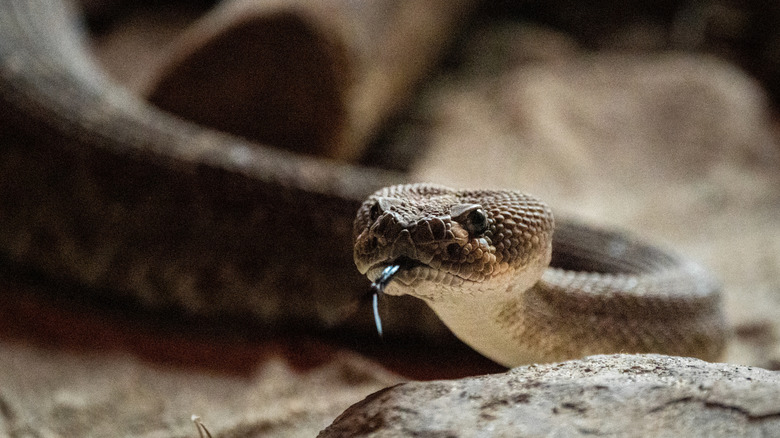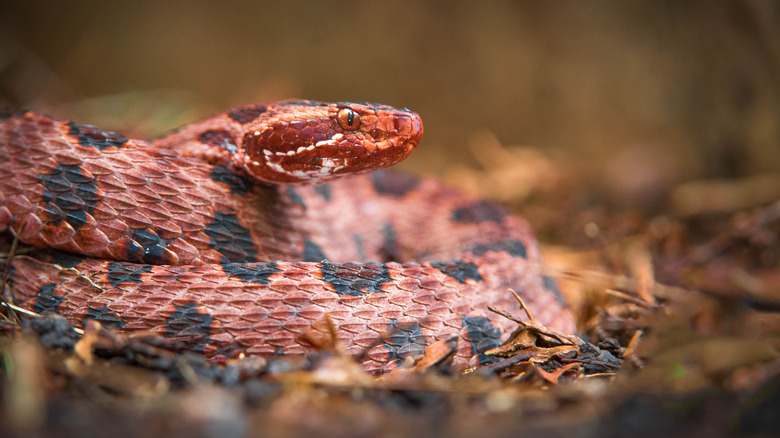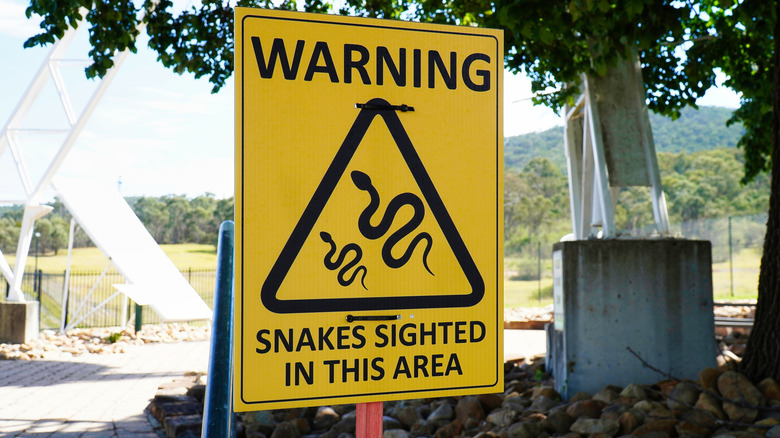In North Carolina, Killing One Of These Venomous Snakes Is Illegal And Could Land You In Jail
Let's be honest, snakes aren't exactly the cuddliest of creatures. Even the ultimate movie hero, Indiana Jones, was famously afraid of them. It also doesn't help that some snakes are venomous. If you encounter a snake in the wild, especially a venomous one, you might be tempted to kill it. However, wildlife officials in North Carolina are reminding the public that killing certain snakes there could land you in jail.
The reason for this is that these snakes are protected by the state, making it illegal to kill them. Even though venomous snakes in particular can be dangerous creatures to those they encounter, there's an important reason they're protected; . This protective status also means you can't harm or move them. Along with jail, you could receive a .
In total, there are . They include eastern diamondback rattlesnakes, timber rattlesnakes, Carolina pygmy rattlesnakes, eastern coral snakes, northern pine snakes, Carolina watersnakes, Outer Banks kingsnakes, smooth green snakes, and southern hognose snakes. Among these species, the .
Where you'll find venomous snakes in North Carolina
In general, you're more likely to encounter a snake when the weather warms up. This is . With this in mind, make sure to keep your eyes peeled if you're spending more time outdoors during summer.
As far as where in North Carolina these snakes are, one area that's home to a . This forest is located in , near the charming riverfront town of New Bern. It's advised that anyone camping in the Croatan National Forest in case you come in contact with one.
, which is two hours northeast of Croatan National Forest. This type of rattlesnake typically . Be especially careful if you go swimming here since ! Considering these are one of the , they're not exactly the kind of swimming buddy you want. Other areas in North Carolina you are more likely to see rattlesnakes include the .
What if you run into a snake?
If you run into a snake, don't panic. , which means they're unlikely to go after you in the first place. The exception would be if the snake felt threatened, so if you leave it alone, it should leave you alone.
While it's one thing to encounter a snake out in the wild, what should you do if you see one in your backyard? Unfortunately, the North Carolina Wildlife Resources Commission says they do not send out officials to remove snakes from people's property. However, if a snake is inside your home, NC Wildlife says you can pay a private certified Wildlife Control Agent to remove it for you. They suggest the best way to prevent snake encounters at home is to remove clutter from your yard and block any holes that a snake could use to enter the house.
As far as other states go, the rules on killing snakes will vary from state to state and species to species. The state with the , and even lakes in Arizona can be infested with snakes! On the flip side, . If you're scared of snakes, those chilly temps don't sound so bad, right?


